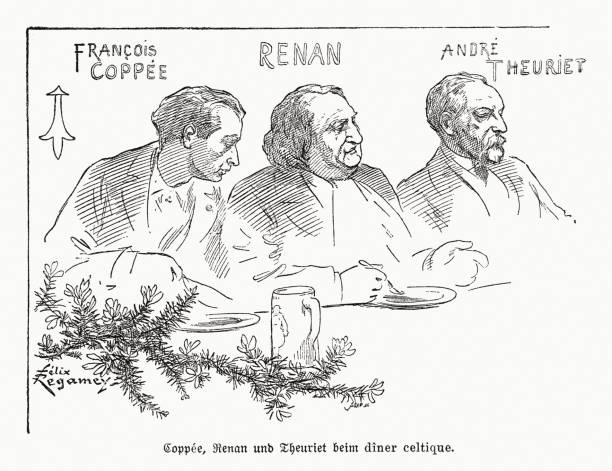Summary
He grew up as a devout Christian, then deviated from his faith for a period in his intellectual pursuits, only to return to practicing his faith and become internationally famous. He is considered one of the profound philosophers, historians, and scholars of religion who have ever lived.
Ernest Renan (1823–1892) was a French philosopher, historian, and scholar of religion whose work profoundly influenced modern historical and religious studies. Renan’s critical approach to religious texts, his philosophical reflections on nationalism, and his controversial views on race and identity continue to provoke scholarly debate. This essay examines his biography, notable works, historical significance, and enduring legacy.
Biography
Born in Tréguier, Brittany, Renan was initially educated for the Catholic priesthood. He studied at seminaries, , including Saint-Nicolas-du-Chardonnet and Saint-Sulpice. . owever, his exposure to historical criticism and scientific reasoning led to a crisis of faith, and he left the Church in 184. Renan retained a quasi-Christian belief in a moral order but pursued secular scholarship.
https://www.britannica.com/biography/Ernest-Renan
https://en.wikipedia.org/wiki/Ernest_Renan
https://www.newworldencyclopedia.org/entry/Ernest_Renan#google_vignette
Major Works
Life of Jesus (1863)
Renan’s ‘Life of Jesus’ was a groundbreaking work that portrayed Jesus as a historical figure rather than a divine being. He rejected the supernatural elements of the Gospels and argued that Christianity emerged from popular messianic expectations. The book was widely read and fiercely criticized, especially by the Catholic Church. Renan wrote: “Jesus was not God, but a man of sublime character.”
What is a Nation (1882)
In his famous lecture ‘What is a Nation?’, Renan argued that a nation is defined not by race, language, or religion, but by a shared History and collective will. He stated: “A nation is a soul, a spiritual principle... having done great things together and wishing to do more.” The concept of civic nationalism, which contrasts with ethnic definitions, has influenced modern political thought.
Historical Significance
Renan was a pioneer of critical historical scholarship. He applied scientific methods to religious texts, challenging traditional dogma. His work laid the foundation for modern biblical criticism and influenced the study of early Christianity and Semitic languages.
Controversies
Renan’s views on race and Judaism have drawn significant criticism. He promoted theories such as the Khazar hypothesis and described Jews as “an incomplete race,” views now considered scientifically discredited and racially biased. These aspects of his work have marred his legacy and are subject to ongoing scholarly reassessment.
Legacy
Despite controversies, Renan remains a key figure in the development of modern historical and religious studies. His emphasis on critical inquiry, secular scholarship, and civic nationalism continues to influence contemporary debates on faith, reason, and identity.
